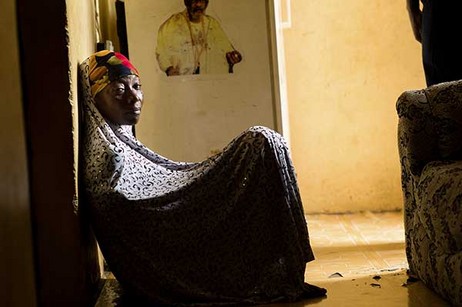Open Innovation Solutions for Mental Health Problems in the Developing World
Published Apr-28-14Breakthrough:
An open innovation contest yields a unique tool to help raise awareness and use of services for people with mental health problems in the developing world.
Company:
Scientists Without Borders, United States
The Story:
 The power of the crowd and open innovation may well be helping businesses solve their problems, innovate and develop new products, but the benefits don’t end there. Soliciting the contribution of diverse intellects also benefits local communities and medical and pharmacological research companies among others.
The power of the crowd and open innovation may well be helping businesses solve their problems, innovate and develop new products, but the benefits don’t end there. Soliciting the contribution of diverse intellects also benefits local communities and medical and pharmacological research companies among others. Some of the biggest issues of our age such as global warming and poverty alleviation are also the focus of the crowd’s attention. To try and raise awareness of and utilization of mental health services for depression and anxiety disorders among patients in the developing world, Scientists Without Borders launched a $10,000 open innovation contest.
Solutions Needed
Novel solutions are desperately needed as the incidence of mental health disorders is far higher in low to middle income countries. The challenges are even greater in these places due to lack of knowledge and/or awareness and stigmas related to mental health issues. Another problem the contest drew attention to was the fact that many countries devote less than 2% of their health budgets to mental health, even though mental health problems are a huge and costly burden.
During the 31-day submission period, 36 ideas were put forward and they were assessed by a panel made of up of leading global, social and mental health professionals.
Winning Proposal
The winning concept, “Mhealth for Mental Health” was developed by Veena S. Katikineni, a medical student in the US and Alejandra Leyton, a Bolivian health economist.
The proposed service uses SMS text messaging to supply relevant information to the depressed/and or anxious person and their family, friends and carers. The idea behind this is that access to mental information combined with a supportive social network will empower individuals to combat their mental health problems.
“We formed a vision of the ideal discrete support mechanism, and then explored the literature to best apply this vision to the issues of depression and anxiety,” wrote Alejandra Leyton & Veena Katikineni.
“We were familiar with the extent of social stigma as well as the lack of mental health services, both of which impede access to reliable information to cope with the disease in developing countries.”
The novel service, which is looking for support will be for people between the ages of 15 and 49 who present with symptoms of depression or anxiety, as well as members of their support network. Only people with access to mobile phones and who are literate will be able to read the free information, but the idea is that it will then spread by word of mouth.
A suggestion for an online portal was also part of the Mhealth for Mental Health concept. Here, Google Maps could help to display the locations of mental health resources in the community.
Next Story »

